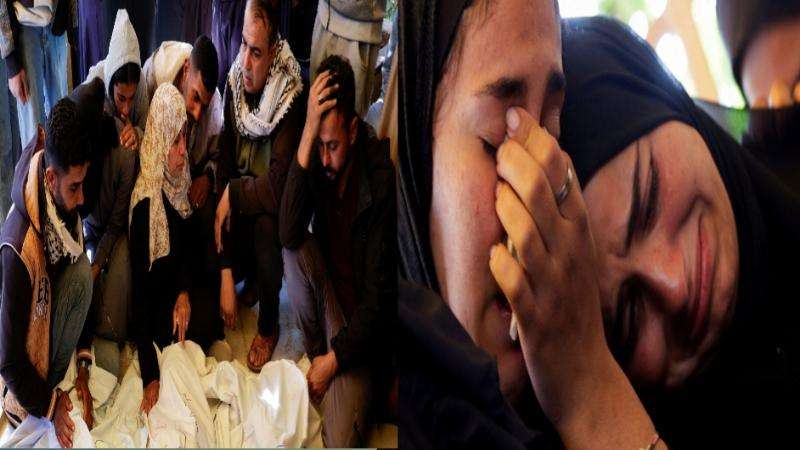In a devastating escalation of the ongoing conflict, Israeli strikes across the Gaza Strip have claimed the lives of more than 90 Palestinians in the past 48 hours, according to the Hamas-run health ministry. The relentless bombardments have once again underscored the immense human cost of the conflict, with women and children among the mounting casualties, Daily Dazzling Dawn understand.
Tragedy struck overnight on Friday in the southern city of Khan Younis, where hospital staff reported the deaths of 15 individuals, many of whom were women and children. Adding to the horror, at least 11 of these victims were sheltering in a tent within the designated humanitarian zone of al Mawasi. This area, meant to provide refuge for hundreds of thousands displaced by the conflict, has now become a scene of further loss and devastation, raising serious questions about the safety and sanctity of such zones.
Further south, in the city of Rafah, four more lives were claimed in separate strikes. Among the deceased were a mother and her daughter, their bodies taken to Gaza's European Hospital, starkly illustrating the devastating impact of the conflict on families.
While the Israeli military has yet to issue a public statement regarding these latest strikes, its leadership has repeatedly vowed to intensify attacks throughout Gaza and establish extensive "security zones" within the territory. Israel maintains that these actions are necessary to exert pressure on Hamas to release the remaining hostages and ultimately agree to disarm and relinquish control of Gaza.
However, these intensified military operations come against a backdrop of a crippling blockade that has been imposed by Israeli troops for weeks. This blockade has severely restricted the entry of essential food supplies and other vital goods into Gaza, exacerbating the already dire humanitarian crisis facing the civilian population. International aid organizations have repeatedly warned of the catastrophic consequences of these restrictions, as essential resources dwindle and the risk of widespread famine looms large.
The recent casualties follow the tragic killing of 15 aid workers last month, who were struck by Israeli fire and subsequently buried in a shallow grave. This incident sparked international condemnation and further highlighted the extreme dangers faced by civilians and humanitarian personnel operating within Gaza.
The continued loss of life, particularly within designated humanitarian zones, and the tightening of the blockade are fueling growing international concern and calls for an immediate cessation of hostilities. Critics argue that the relentless military campaign and the restrictions on aid are inflicting unacceptable suffering on the civilian population and hindering any prospects for a peaceful resolution to the conflict. The focus remains on the urgent need for a ceasefire, the unimpeded flow of humanitarian aid, and a renewed commitment to finding a sustainable and just solution that ensures the safety and security of all people in theregion.








.svg)


